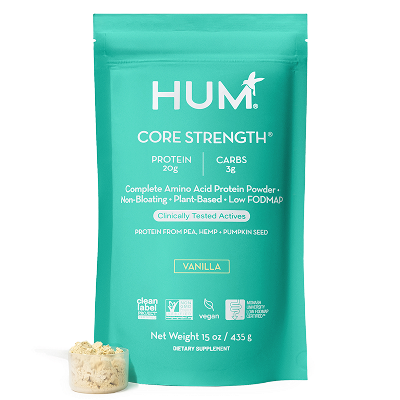THE WELLNEST • Food • Healthy Eating
5 Key Reasons Why We Need Protein, According to an RD
By Gaby Vaca-Flores, RDN, CLE •
March 15, 2021
Gaby Vaca-Flores, RD, CLE, explains why we need protein and how it’s so important for overall health. Plus: How much protein do you need daily?
Everyone needs protein in their diets, primarily because it’s an essential nutrient. This means that the body relies on a regular supply of it from dietary sources to meet its needs.
Additionally, protein exists in a synthesis cycle. In other words, the body is always breaking down, using, and discarding it, making it that much more important to ensure you’re getting enough.
Keep reading to find out why we need protein and how much you should really have daily.


Why Do We Need Protein?
Quite often, many of us associate this macronutrient with building muscle. While that’s certainly spot on, it actually plays a role in nearly every bodily process, as well. Here are five reasons why we need protein to maintain good health.1. Protein supports a healthy immune system
The immune system uses specialized proteins called antibodies or immunoglobulins to protect against infections. Antibodies are specifically created and released in response to an invasion from harmful pathogens like bacteria and viruses. As this process repeats itself, the immune response becomes more efficient at producing pathogen-specific antibodies, thus making it easier for the body to fight infections. Additionally, certain amino acids (the building blocks of protein) may have an immuno-preserving effect. For example, the amino acid arginine can help promote the healthy function of T-cells, an essential part of the immune system. Arginine can also protect against low protein levels, which may compromise the immune system.
2. Protein Builds + Maintains Muscle
Muscle is mostly made of protein. So naturally, in order to build and maintain muscle mass, you need to consistently ingest adequate amounts of protein. This requirement is especially pertinent for strength trainers and athletes who frequently tear muscle during their workouts. In addition, people who follow weight loss regimens may be at risk for muscle loss on account of dietary restriction. Research suggests that adequate protein intake during weight loss can help overweight people maintain muscle mass and strength.3. Protein Adds Structure
Surprising to most, protein helps provide structure in many areas of the body. Structural proteins are fibrous, meaning they provide connective tissues with strength and protection. These structural proteins include:- collagen
- elastin
- keratin
4. Protein Helps Manage Weight
Protein can help you maintain a healthy weight in a number of ways. For starters, it’s the most filling macronutrient. In fact, a review on the effect of protein suggests that it can promote greater satiety and increase thermogenesis, the process by which calories are burned. In addition, protein can positively influence the hormones that affect appetite. Specifically, protein may help lower levels of ghrelin, the hunger hormone. Lower grehlin levels can help prevent overeating, which often results in weight gain. Protein can also promote healthy peptide YY levels, which can help you feel fuller, faster. Moreover, a 2020 study suggests that following a high-protein diet can help support weight reduction and prevent plateaus throughout a weight loss regimen. Additionally, another study found that women who increased their caloric intake of protein by 30 percent experience 11 pounds of weight loss over the course of 12 weeks—all without making any other dietary changes.
5. Protein Supports Growth, Development + Repair
Finally, it plays an important role for growth and pro-aging. Amino acids help grow and maintain tissues found in all areas of the body, including:- blood vessels
- bones
- muscles
- tendons
- skin, hair + nails
How much do you need daily?
Now that we understand why we need protein, we should investigate how much of it we need daily. To begin, most people aren’t deficient in protein. That said, the Recommended Dietary Allowance (RDA) for protein starts at 0.8 grams per kilogram of body weight per day. More comfortable using pounds instead of kilograms? Calculate the minimum estimated amount of protein you should eat each day with this formula:- body weight (in pounds) x 0.36 = # of grams of protein needed per day (at minimum)
- seeds
- nuts
- beans
- vegan protein powder
Final Thoughts
As you can see, protein is important for many aspects of your health. In addition to supporting your muscles, protein can help keep your immune system strong, maintain hair and skin health, and support weight management. Just remember: Everyone’s protein needs will vary slightly. To ensure you’re getting enough, aim to get the majority of your protein from whole-food sources, and otherwise consider supplementing with a high-quality protein powder.More like this









